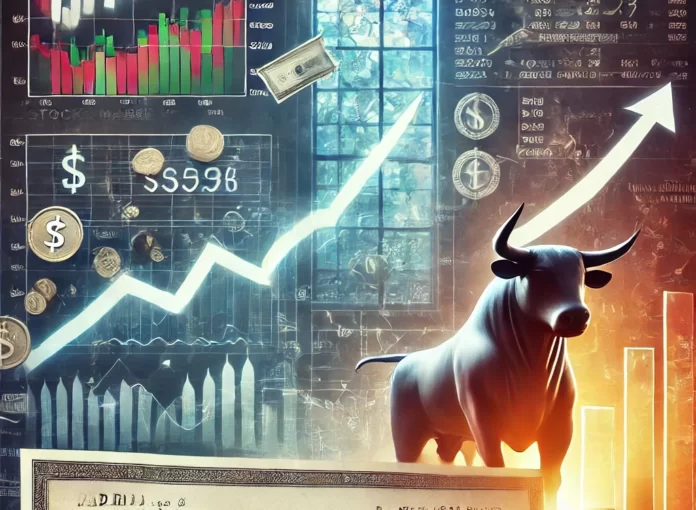Asian shares plummeted on Thursday as a significant decline in global tech stocks drove investors to safer assets like short-dated bonds, the yen, and the Swiss franc, according to Reuters.
Chinese stocks received little support despite a surprise cut in long-term rates by the country’s central bank, which was part of a broader set of recent stimulus measures. The stock sell-off spurred increased bets on global rate cuts, with futures now suggesting a 100% chance of a Federal Reserve easing in September. Market volatility spiked, squeezing carry trades and causing the dollar to drop 0.6% to 152.85 yen.
MSCI’s broad index of Asia-Pacific shares, excluding Japan, fell 0.7%. Japan’s Nikkei dropped 2.9%, while South Korea’s KOSPI lost 2%. Taiwan’s markets remained closed for a second day due to a typhoon.
Chinese blue chips reduced earlier losses to a decline of 0.1%, but the Shanghai Composite Index was still down 0.3%, reaching a five-month low. Hong Kong’s Hang Seng Index fell 0.6%, finding little relief from Beijing’s latest easing measures.
On Wall Street, the Nasdaq experienced a nearly 4% drop, marking its worst single-day decline since 2022, as disappointing earnings from Alphabet and Tesla undermined confidence in the high valuations of the “Magnificent Seven” stocks. This contributed to increased market volatility, with Wall Street’s fear gauge rising to a three-month high. Investors flocked to cash and highly liquid short-term debt, pushing U.S. two-year yields to their lowest in almost six months on Wednesday.
In early Asian trading, Nasdaq futures gained 0.4%, and S&P 500 futures rose 0.3%.
“Traders have adopted a defensive stance as they unwind heavily owned tech positions,” Chris Weston, head of research at Pepperstone, told Reuters. “This, combined with ongoing concerns about China’s growth, disappointing European PMIs, and a bearish opinion piece from former New York Fed member Bill Dudley, has led investors to de-risk and adjust their portfolios.”
The yen emerged as a major safe-haven asset, rising 0.6% to its strongest level in 2.5 months. It surged 1.1% overnight, with momentum expected to continue ahead of the Bank of Japan’s meeting next week, where interest rate decisions will be discussed. The Swiss franc also strengthened by 0.7% overnight.
Short-dated bonds saw gains overnight, supported by Bill Dudley’s comments advocating for a Fed rate cut, preferably at next week’s policy meeting. The yield on two-year Treasuries fell 4 basis points overnight and was steady at 4.4121%.
Markets are now fully expecting a quarter-point rate cut from the Fed in September, with some anticipating a 50 basis point cut. For 2024, a total easing of 65 basis points has been factored in.
“The expectations for a rate cut are becoming as elevated as they were last year,” noted Andrew Lilley, chief rates strategist at Barreyjoey in Sydney.
In commodity markets, gold fell 0.9% to $2,375.92 per ounce, while oil prices ticked lower amid concerns about reduced demand due to a slowing Chinese economy. Brent futures declined 0.4% to $81.81 per barrel, and U.S. West Texas Intermediate (WTI) crude fell 0.3% to $77.33.




